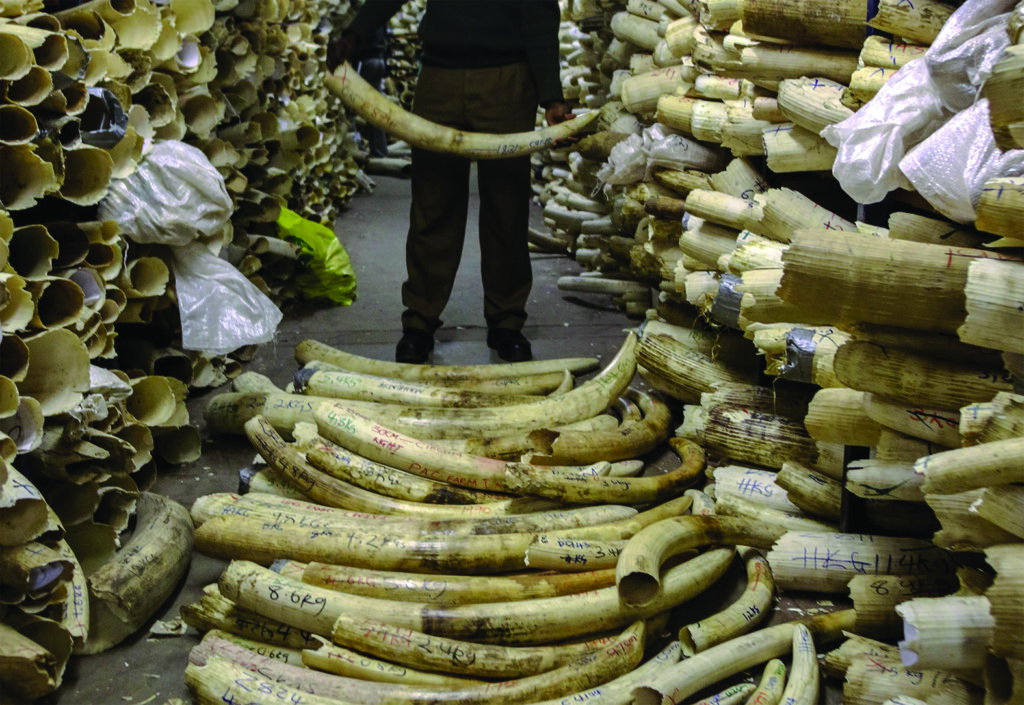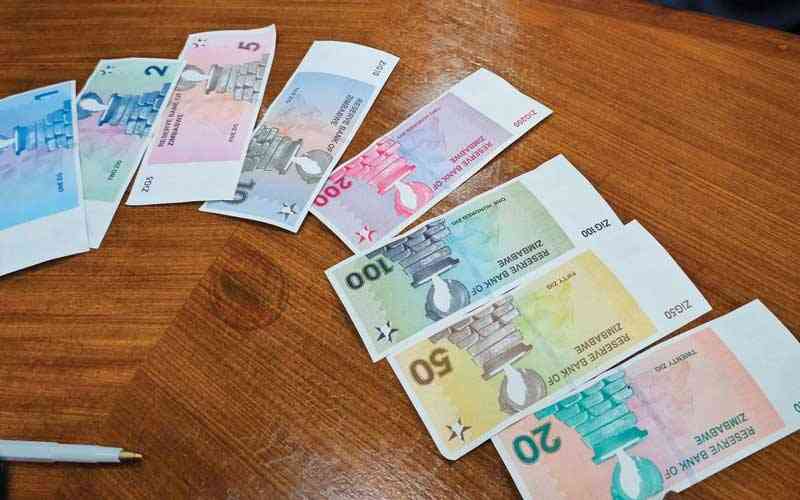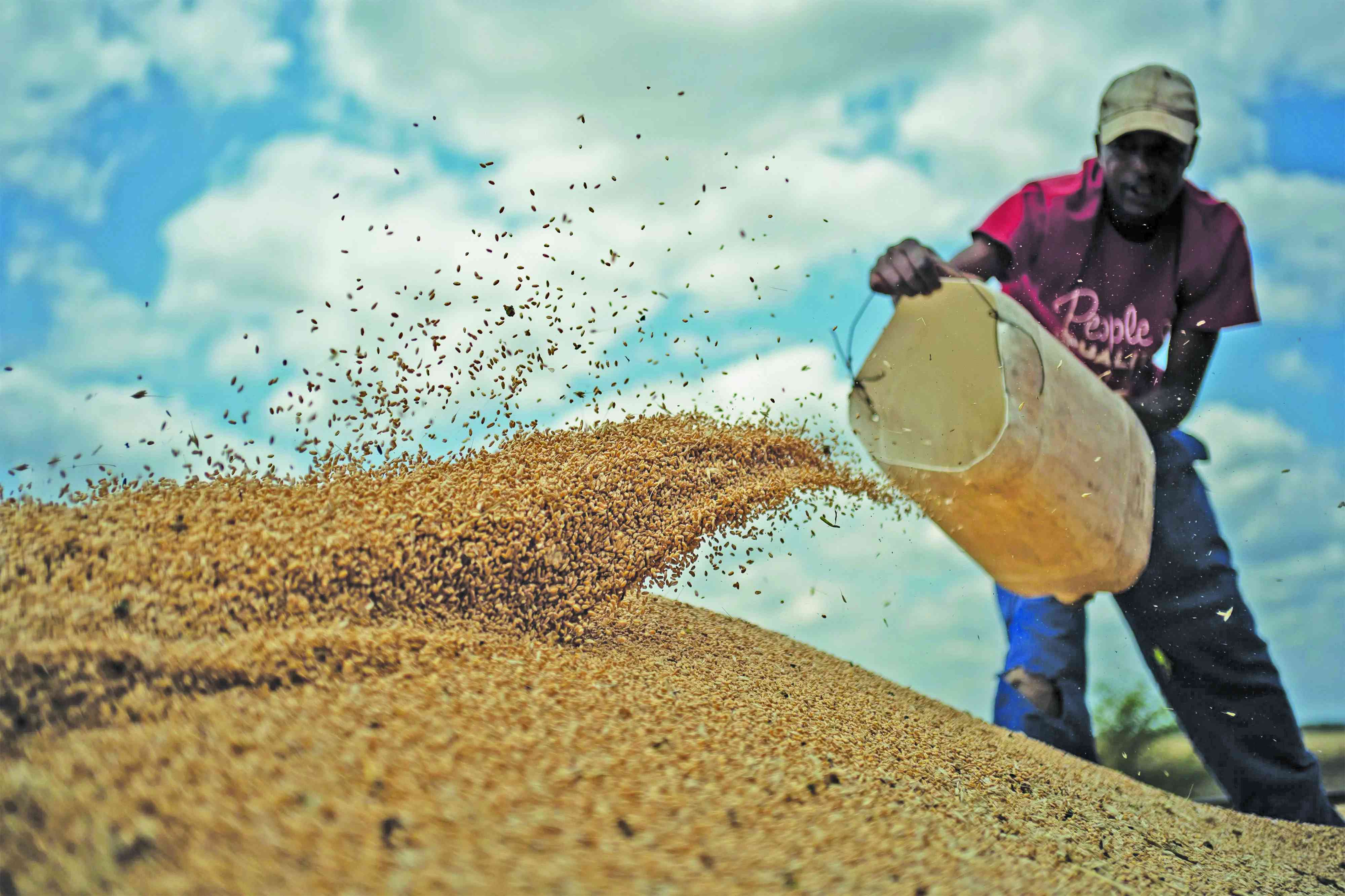
ZIMBABWE is desperately seeking international support to be allowed to sell its stockpile of ivory to raise funds for its conservation efforts.
It is an age-old problem for the southern African country which has become a recurring theme ever since Convention on International Trade in Endangered Species of Wild Fauna and Flora (CITES) banned the international commercial ivory trade in 1989.
In 1997, Cites, the international body which monitors endangered species, permitted Botswana, Namibia and Zimbabwe a once-off sale of ivory stockpile to Japan totalling 50 tonnes because it recognised that some southern African elephant populations were healthy and well managed.
Zimbabwe is on the spot again, with a stockpile of 130 tonnes of ivory and about seven tonnes of rhino horn according to the Zimbabwe Parks and Wildlife Management Authority director-general, Fulton Mangwanya.
He told ambassadors from the Netherlands, Germany, France, Britain, Switzerland, Canada and the United States, who were taken to view the ivory tusks that the stockpile had been seized from poachers and collected from elephants that have died due to natural attrition.
A sale, if granted could raise US$600 million, about 6,2% of its 2022 national budget and about 77% of the total earnings from tobacco sales in 2021 of US$782 million.
Yet several millions of United States dollars are spent annually to preserve the ivory stockpiles in good state. We do not want to burn these tusks, they were legally acquired and hence there is every reason to have them auctioned to highest bidders at an auction attended by international observers.
Mangwanya said the money was urgently needed for the management of Zimbabwe’s rapidly growing elephant population which it describes as “dangerous.”
- Chamisa under fire over US$120K donation
- Mavhunga puts DeMbare into Chibuku quarterfinals
- Pension funds bet on Cabora Bassa oilfields
- Councils defy govt fire tender directive
Keep Reading
With over 100 000 animals, Zimbabwe has the second largest elephant population in the world after Botswana, representing about a quarter of the elephants in Africa. That number is also more than double its ecological carrying capacity of about 45 000, according to conservationists.
It is generally agreed that Zimbabwe has some of the most robust conservation measures in the world, which have protected the critically-endangered species.
This, however, coupled with the ban on ivory trade, has seen its elephant population growing by 5% a year. The success of the country’s conservation measures are now literally haunting the country, with habitats no longer able to sustain the burgeoning numbers.
As officials pointed out, the elephants have a danger to their own survival, destroying their habitat and that of other animals.
During the tour of the ivory stockpiles, Zimbabwean officials appealed to the envoys to support the sale of ivory.
“We need assistance. These elephants are multiplying at a dangerous rate, 5% per annum,” Mangwanya said.
The country is in desperate need of the help, it must be said, and the international community can help conserve the animals by allowing a heavily monitored sale of the stockpiles and ensuring that the proceeds are used as intended.
The fate of the animals, some national parks and communities rest with managing the numbers so that they do not become a danger to the nation.
The proposed “once-off sale in this COVID-19 pandemic era” is a noble idea that must be supported.











